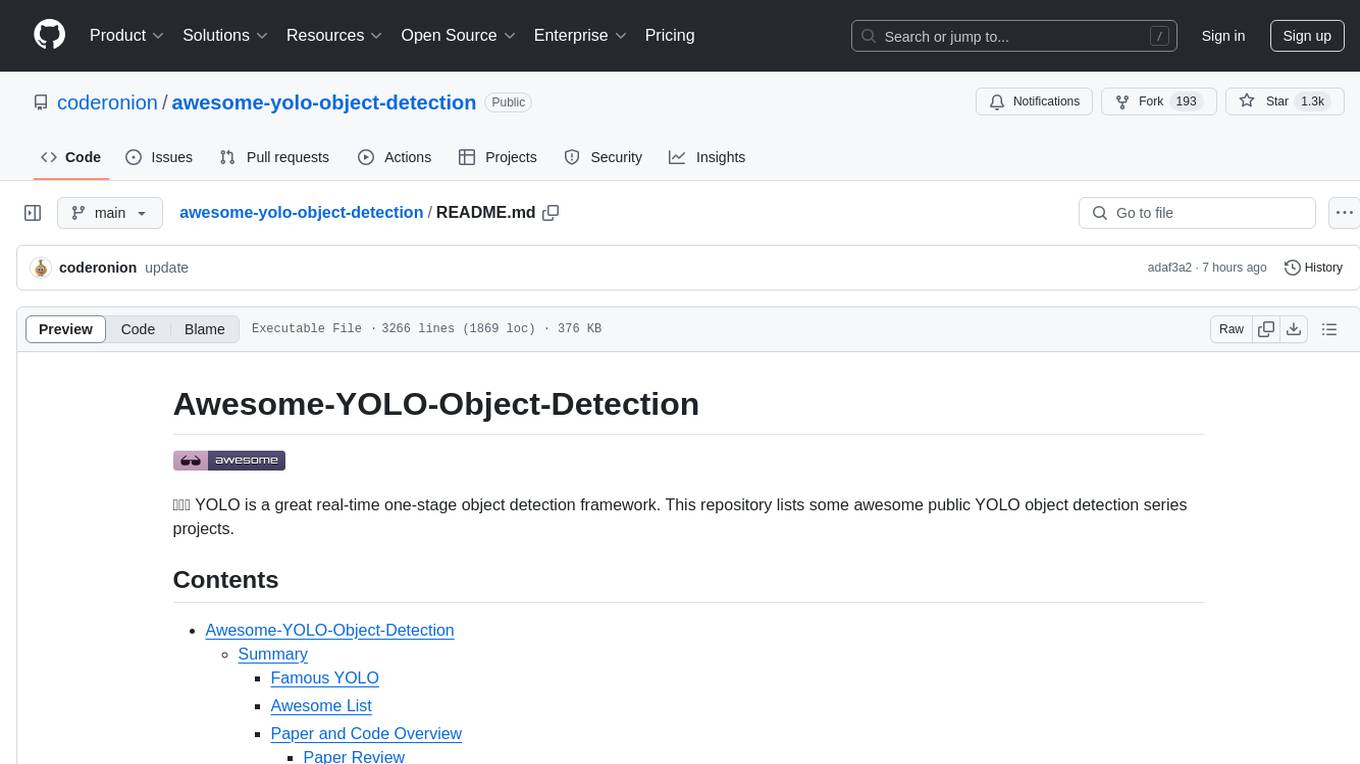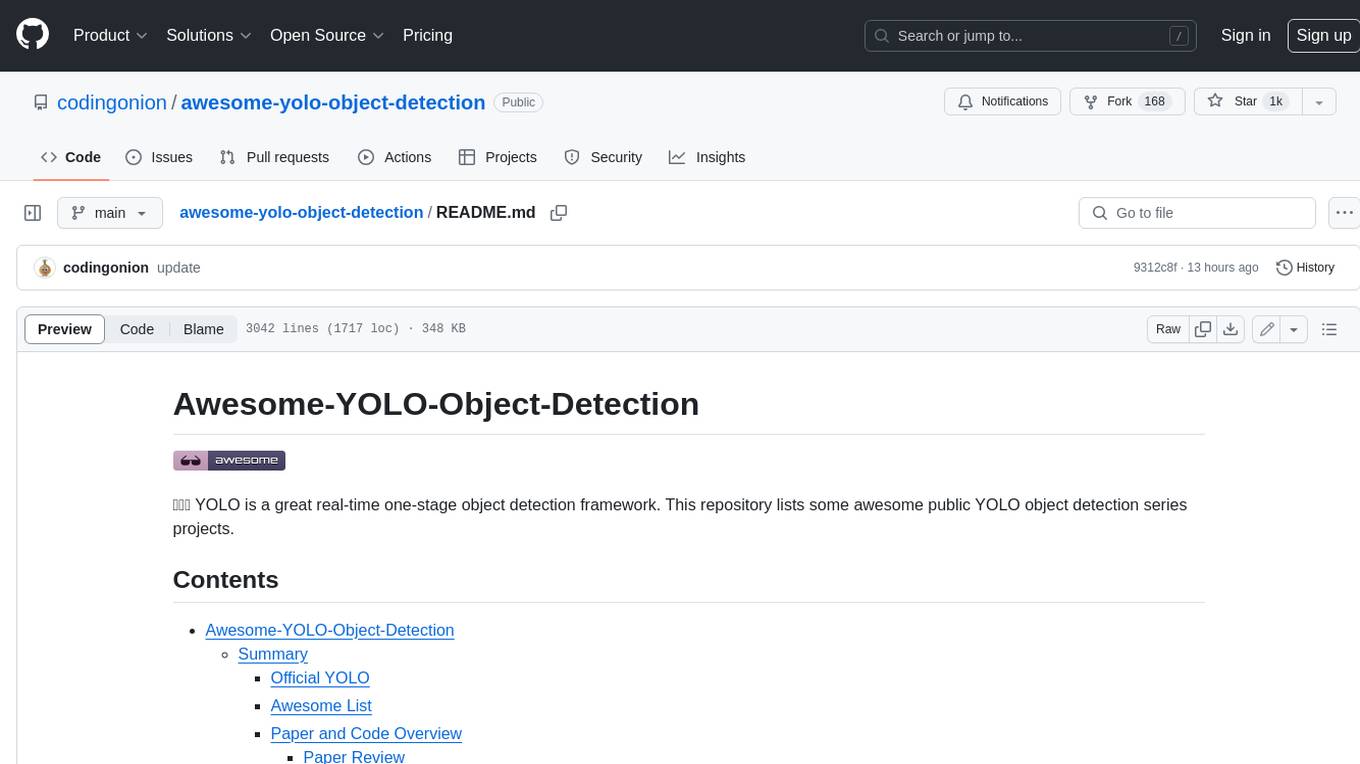
awesome-LLM-AIOps
A list of awesome academic researches and industrial materials about Large Language Model (LLM) and Artificial Intelligence for IT Operations (AIOps).
Stars: 54
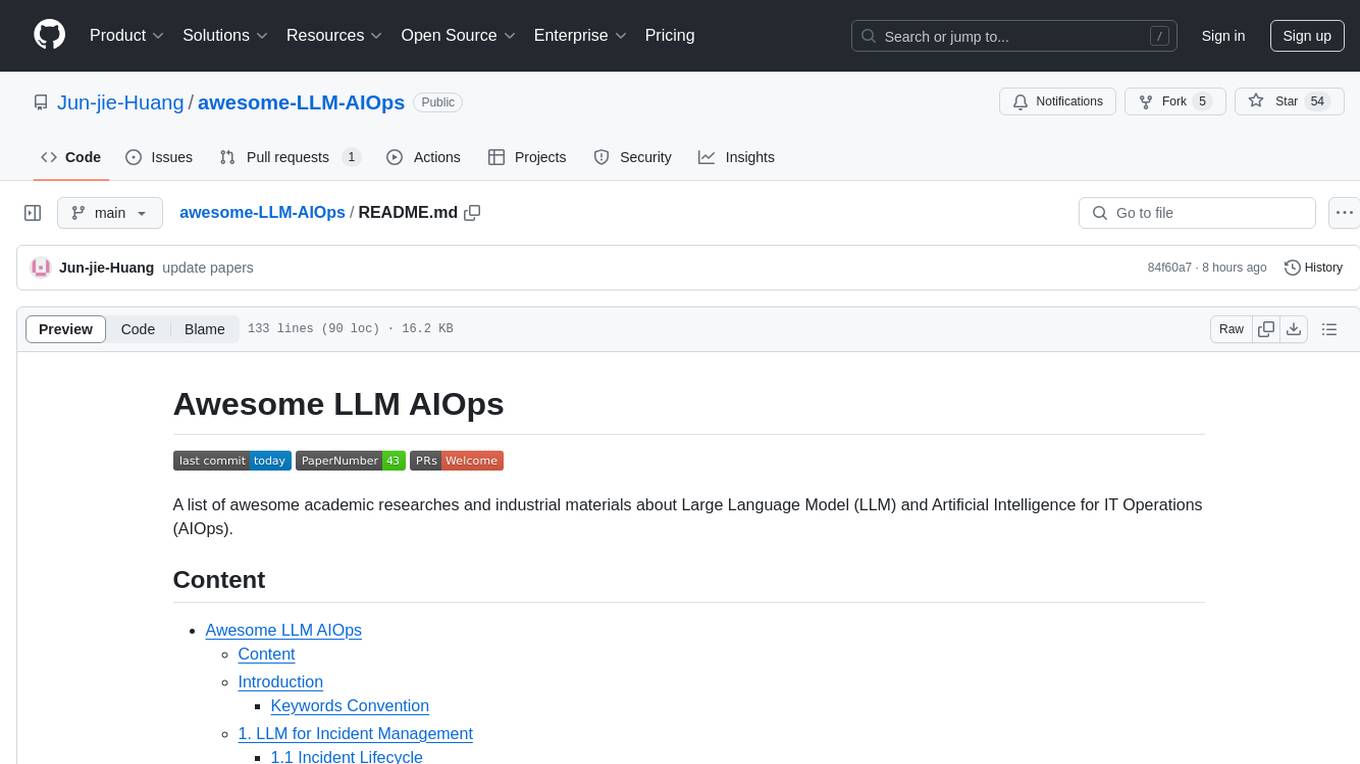
The 'awesome-LLM-AIOps' repository is a curated list of academic research and industrial materials related to Large Language Models (LLM) and Artificial Intelligence for IT Operations (AIOps). It covers various topics such as incident management, log analysis, root cause analysis, incident mitigation, and incident postmortem analysis. The repository provides a comprehensive collection of papers, projects, and tools related to the application of LLM and AI in IT operations, offering valuable insights and resources for researchers and practitioners in the field.
README:
A list of awesome academic researches and industrial materials about Large Language Model (LLM) and Artificial Intelligence for IT Operations (AIOps).
- Awesome LLM AIOps
This is a list of awesome academic researches and industrial materials about Large Language Model (LLM) and Artificial Intelligence for IT Operations (AIOps).



- [HotNets 2023] A Holistic View of AI-driven Network Incident Management.
- [ESEC/FSE Industry 2023] Assess and Summarize: Improve Outage Understanding with Large Language Models.
- [ICSE-SEIP 2024] Knowledge-aware Alert Aggregation in Large-scale Cloud Systems: a Hybrid Approach.
- [FSE Industry 2024] MonitorAssistant: Simplifying Cloud Service Monitoring via Large Language Models.
- [ICSE 2024] Xpert: Empowering Incident Management with Query Recommendations via Large Language Models.
- [ICSE 2023] Recommending Root-Cause and Mitigation Steps for Cloud Incidents using Large Language Models.
- [FSE Industry 2024] LM-PACE: Confidence Estimation by Large Language Models for Effective Root Causing of Cloud Incidents.
- [FSE Industry 2024] Automated Root Causing of Cloud Incidents using In-Context Learning with GPT-4.
- [FSE Industry 2024] X-lifecycle Learning for Cloud Incident Management using LLMs.
- [FSE Industry 2024] Exploring LLM-based Agents for Root Cause Analysis.
- [Preprint 2023] D-Bot: Database Diagnosis System using Large Language Models [project].
- [Preprint 2023] RCAgent: Cloud Root Cause Analysis by Autonomous Agents with Tool-Augmented Large Language Models.
- [Preprint 2024] mABC: Multi-Agent Blockchain-inspired Collaboration for Root Cause Analysis in Micro-Services Architecture.
- [FSE Industry 2024] Leveraging Large Language Models for the Auto-remediation of Microservice Applications - An Experimental Study.
- [ECAI 2024] Nissist: An Incident Mitigation Copilot based on Troubleshooting Guides.
- [SIGOPS 2024] LLexus: an AI agent system for incident management.
- [ICSE-SEIP 2024] FaultProfIT: Hierarchical Fault Profiling of Incident Tickets in Large-scale Cloud Systems.
- [Preprint 2024] FAIL: Analyzing Software Failures from the News Using LLMs.
- [EMNLP Industry 2023] Empower Large Language Model to Perform Better on Industrial Domain-Specific Question Answering [project].
- [ICLR 2024] OWL: A Large Language Model for IT Operations [project].
- [SANER 2024] Gloss: Guiding Large Language Models to Answer Questions from System Logs.
- [Preprint 2023] An Empirical Study of NetOps Capability of Pre-Trained Large Language Models [project].
- [Preprint 2023] OpsEval: A Comprehensive Task-Oriented AIOps Benchmark for Large Language Models [project].
- [ISSTA 2024] A Large-Scale Evaluation for Log Parsing Techniques: How Far Are We?.
- [ASE-NIER 2023] Log Parsing: How Far Can ChatGPT Go? [project].
- [ICSE 2024] DivLog: Log Parsing with Prompt Enhanced In-Context Learning.
- [ICSE 2024] LLMParser: An Exploratory Study on Using Large Language Models for Log Parsing.
- [FSE 2024] LILAC: Log Parsing using LLMs with Adaptive Parsing Cache.
- [ICPC 2024] Interpretable Online Log Analysis Using Large Language Models with Prompt Strategies.
- [Preprint 2023] LEMUR : Log Parsing with Entropy Sampling and Chain-of-Thought Merging.
- [Preprint 2024] Stronger, Cheaper and Demonstration-Free Log Parsing with LLMs.
- [Preprint 2024] LUNAR: Unsupervised LLM-based Log Parsing.
- [Preprint 2024] Log Parsing with Self-Generated In-Context Learning and Self-Correction.
- [Preprint 2024] OpenLogParser: Unsupervised Parsing with Open-Source Large Language Models.
- [ICPC 2024] Interpretable Online Log Analysis Using Large Language Models with Prompt Strategies.
- [Preprint 2023] Log-based Anomaly Detection based on EVT Theory with feedback.
- [Preprint 2023] LogGPT: Exploring ChatGPT for Log-Based Anomaly Detection.
- [Preprint 2024] RAGLog: Log Anomaly Detection using Retrieval Augmented Generation.
- [Preprint 2024] Anomaly Detection on Unstable Logs with GPT Models.
-
[ICSE 2024] UniLog: Automatic Logging via LLM and In-Context Learning.
-
[FSE 2024] Go Static: Contextualized Logging Statement Generation.
-
[Preprint 2023] Exploring the Effectiveness of LLMs in Automated Logging Generation: An Empirical Study [project].
- First, think about which category the work should belong to.
- Second, use the same format as the others to discribe the work. Note that there should be an empty line between the title and the authors list, and take care of the indentation.
- Then, add keywords tags. Add the pdf link of the paper. If it is an arxiv publication, we prefer /abs/ format to /pdf/ format.
Don't worry if you put all these wrong, we will fix them for you. Just contribute and promote your awesome work here!
If you recommended a work that wasn't yours, you will be added to the contributor list (be sure to provide your information in other contributors).
For Tasks:
Click tags to check more tools for each tasksFor Jobs:
Alternative AI tools for awesome-LLM-AIOps
Similar Open Source Tools

awesome-LLM-AIOps
The 'awesome-LLM-AIOps' repository is a curated list of academic research and industrial materials related to Large Language Models (LLM) and Artificial Intelligence for IT Operations (AIOps). It covers various topics such as incident management, log analysis, root cause analysis, incident mitigation, and incident postmortem analysis. The repository provides a comprehensive collection of papers, projects, and tools related to the application of LLM and AI in IT operations, offering valuable insights and resources for researchers and practitioners in the field.
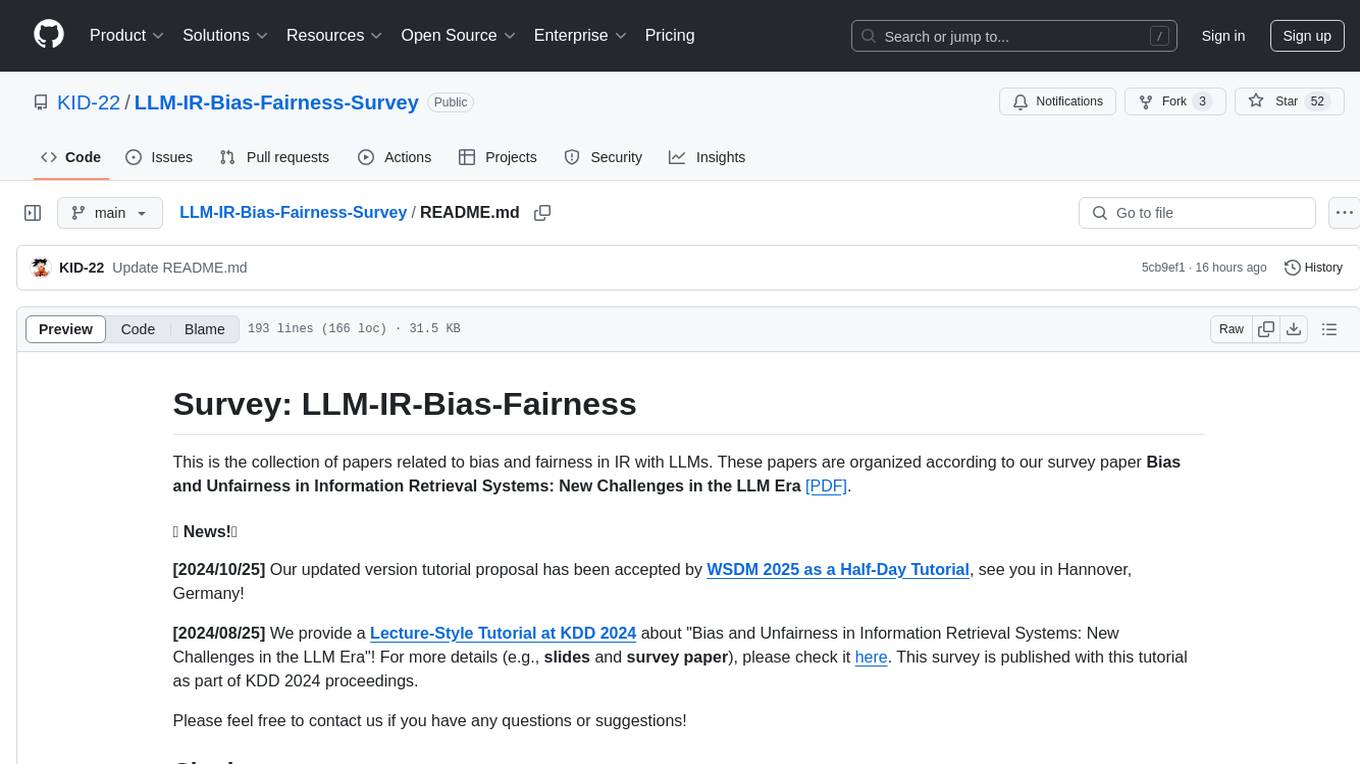
LLM-IR-Bias-Fairness-Survey
LLM-IR-Bias-Fairness-Survey is a collection of papers related to bias and fairness in Information Retrieval (IR) with Large Language Models (LLMs). The repository organizes papers according to a survey paper titled 'Bias and Unfairness in Information Retrieval Systems: New Challenges in the LLM Era'. The survey provides a comprehensive review of emerging issues related to bias and unfairness in the integration of LLMs into IR systems, categorizing mitigation strategies into data sampling and distribution reconstruction approaches.
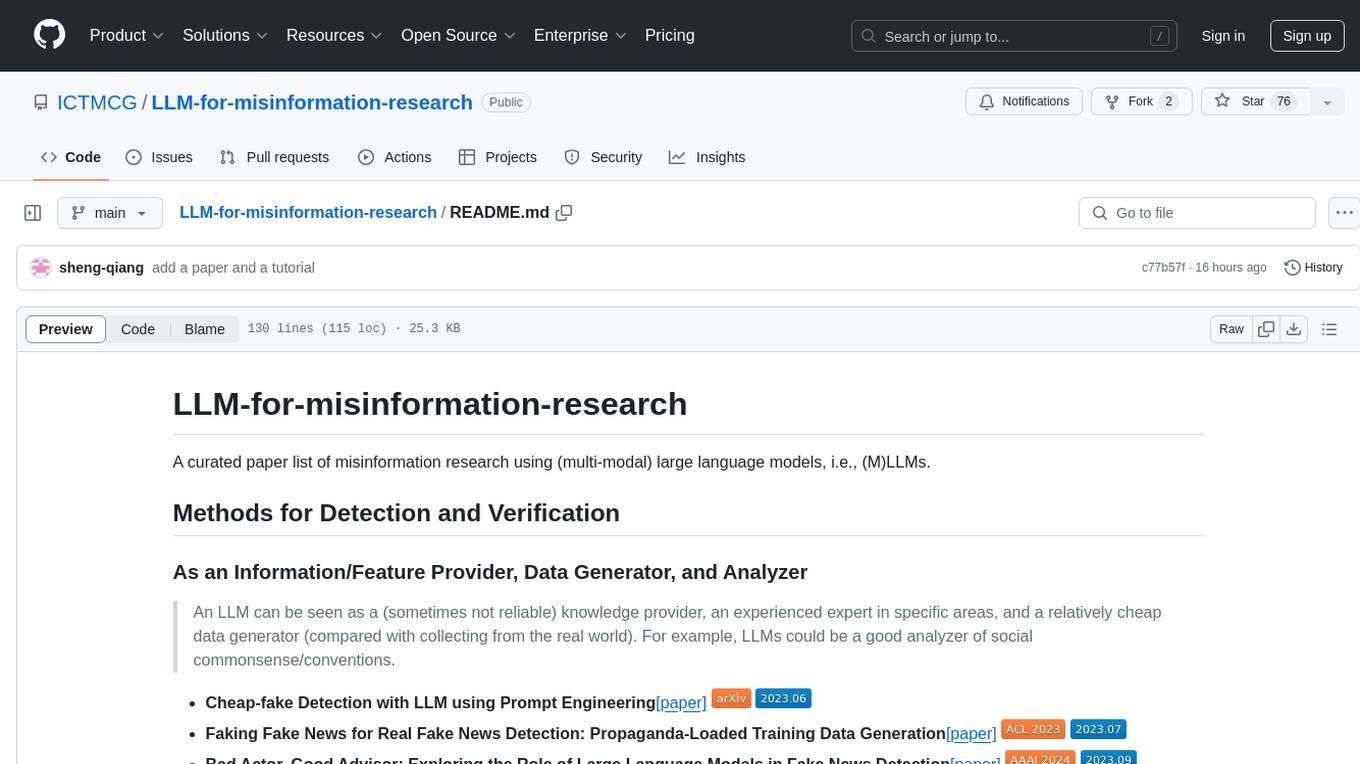
LLM-for-misinformation-research
LLM-for-misinformation-research is a curated paper list of misinformation research using large language models (LLMs). The repository covers methods for detection and verification, tools for fact-checking complex claims, decision-making and explanation, claim matching, post-hoc explanation generation, and other tasks related to combating misinformation. It includes papers on fake news detection, rumor detection, fact verification, and more, showcasing the application of LLMs in various aspects of misinformation research.
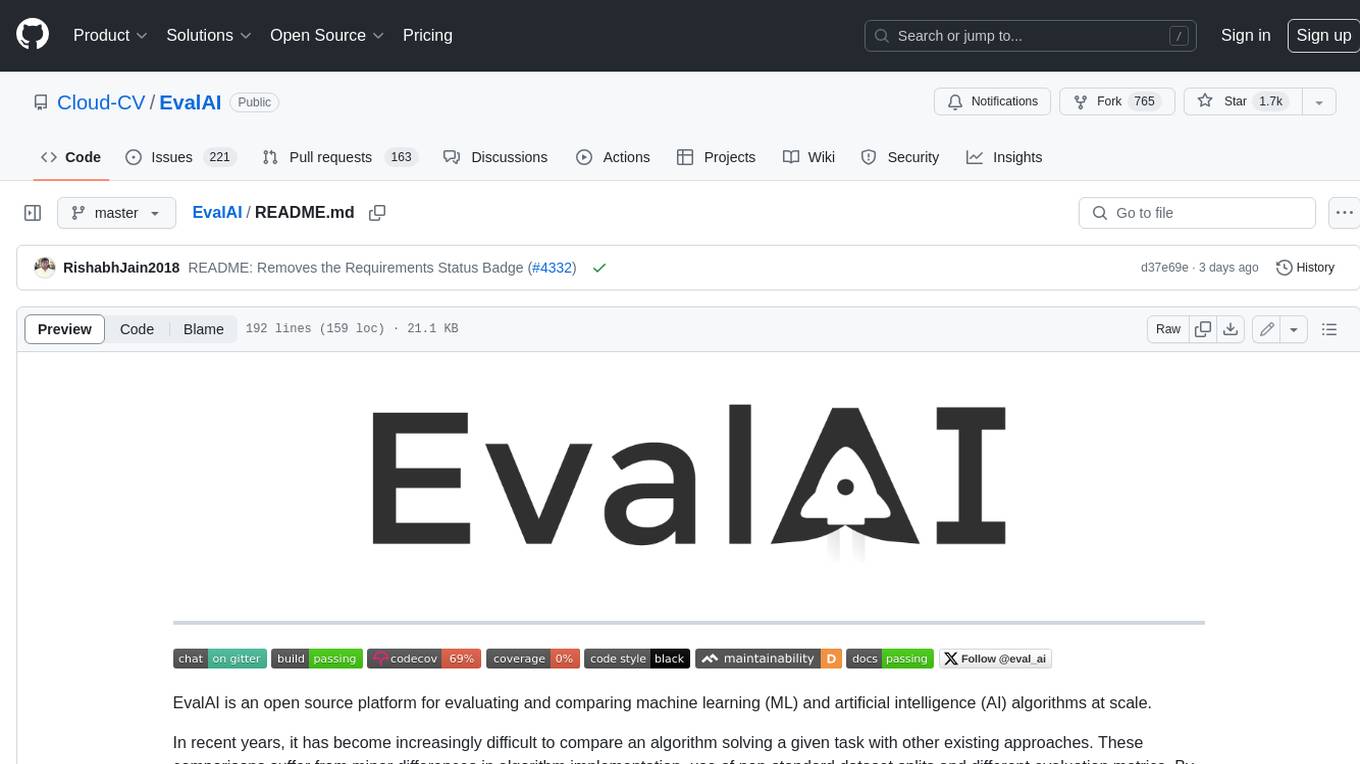
EvalAI
EvalAI is an open-source platform for evaluating and comparing machine learning (ML) and artificial intelligence (AI) algorithms at scale. It provides a central leaderboard and submission interface, making it easier for researchers to reproduce results mentioned in papers and perform reliable & accurate quantitative analysis. EvalAI also offers features such as custom evaluation protocols and phases, remote evaluation, evaluation inside environments, CLI support, portability, and faster evaluation.
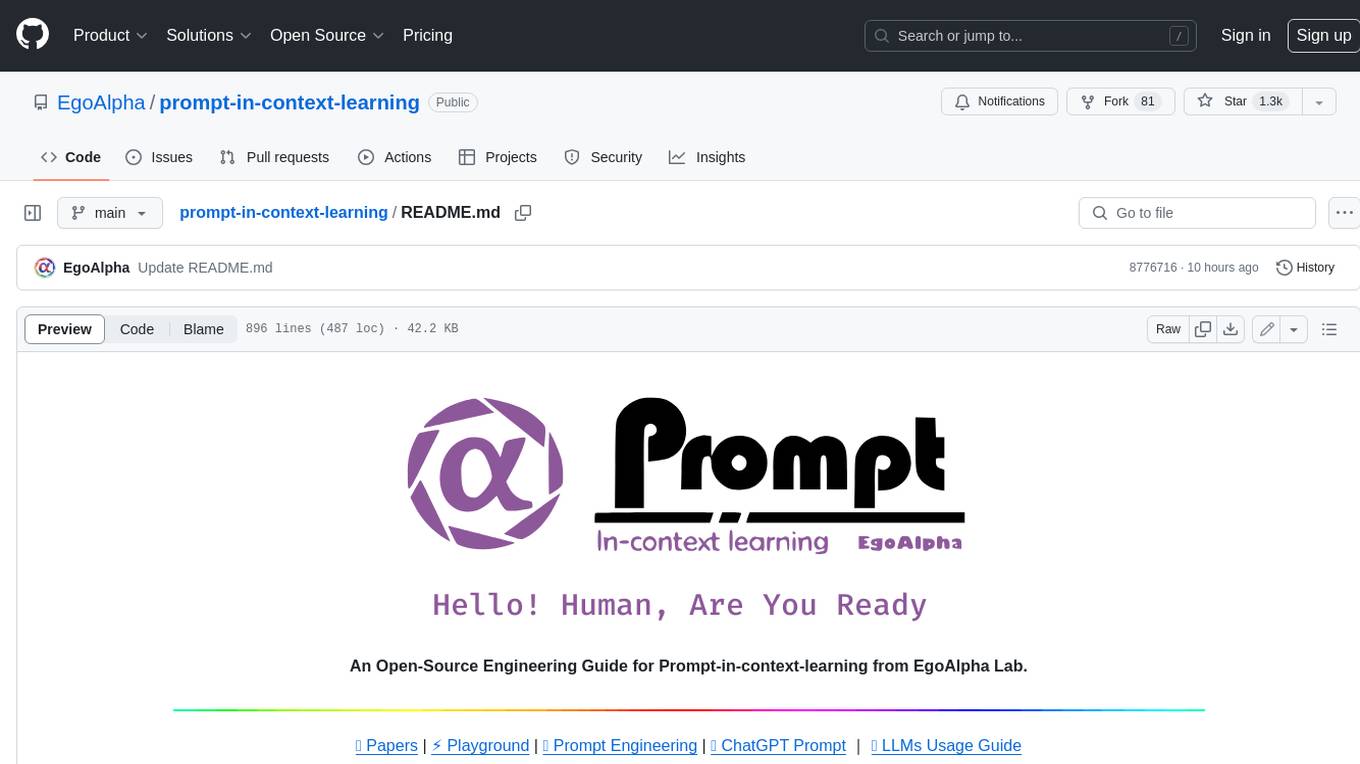
prompt-in-context-learning
An Open-Source Engineering Guide for Prompt-in-context-learning from EgoAlpha Lab. 📝 Papers | ⚡️ Playground | 🛠 Prompt Engineering | 🌍 ChatGPT Prompt | ⛳ LLMs Usage Guide > **⭐️ Shining ⭐️:** This is fresh, daily-updated resources for in-context learning and prompt engineering. As Artificial General Intelligence (AGI) is approaching, let’s take action and become a super learner so as to position ourselves at the forefront of this exciting era and strive for personal and professional greatness. The resources include: _🎉Papers🎉_: The latest papers about _In-Context Learning_ , _Prompt Engineering_ , _Agent_ , and _Foundation Models_. _🎉Playground🎉_: Large language models(LLMs)that enable prompt experimentation. _🎉Prompt Engineering🎉_: Prompt techniques for leveraging large language models. _🎉ChatGPT Prompt🎉_: Prompt examples that can be applied in our work and daily lives. _🎉LLMs Usage Guide🎉_: The method for quickly getting started with large language models by using LangChain. In the future, there will likely be two types of people on Earth (perhaps even on Mars, but that's a question for Musk): - Those who enhance their abilities through the use of AIGC; - Those whose jobs are replaced by AI automation. 💎EgoAlpha: Hello! human👤, are you ready?
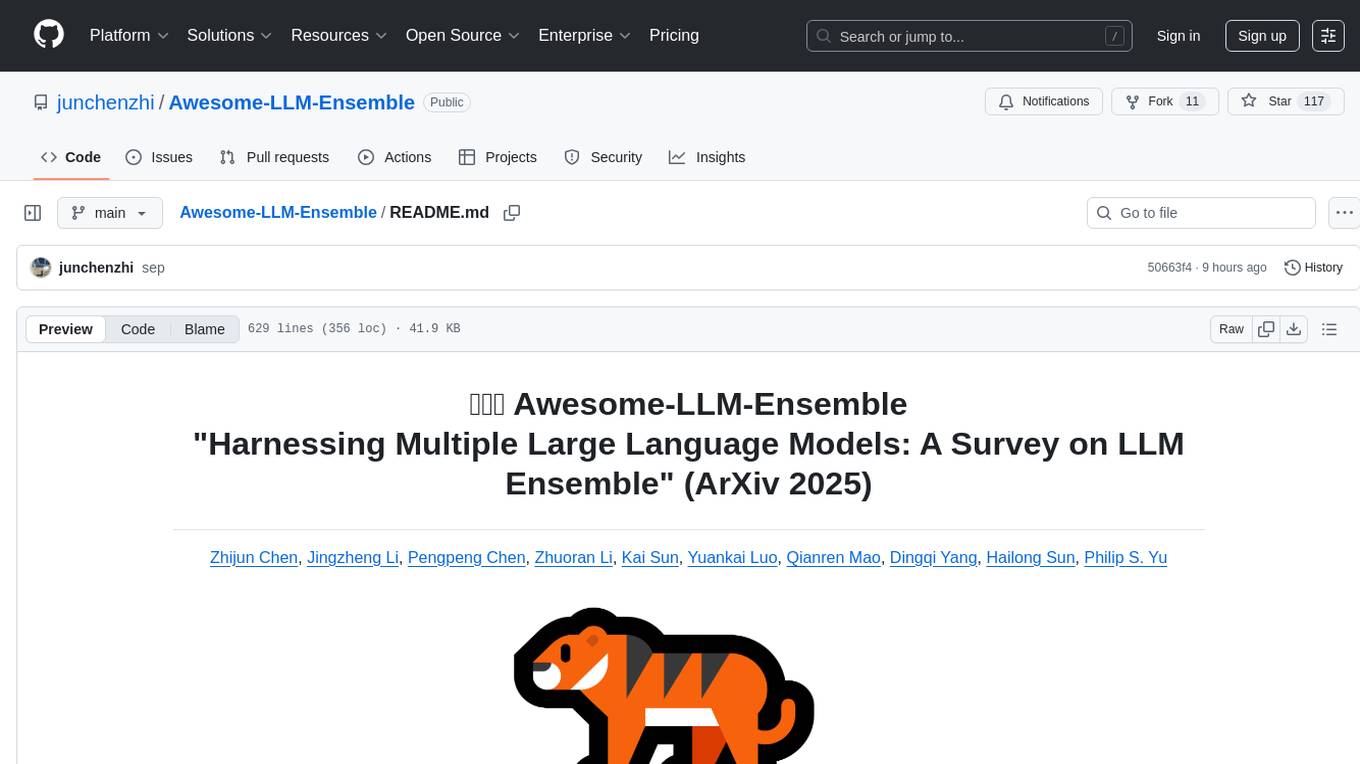
Awesome-LLM-Ensemble
Awesome-LLM-Ensemble is a collection of papers on LLM Ensemble, focusing on the comprehensive use of multiple large language models to benefit from their individual strengths. It provides a systematic review of recent developments in LLM Ensemble, including taxonomy, methods for ensemble before, during, and after inference, benchmarks, applications, and related surveys.
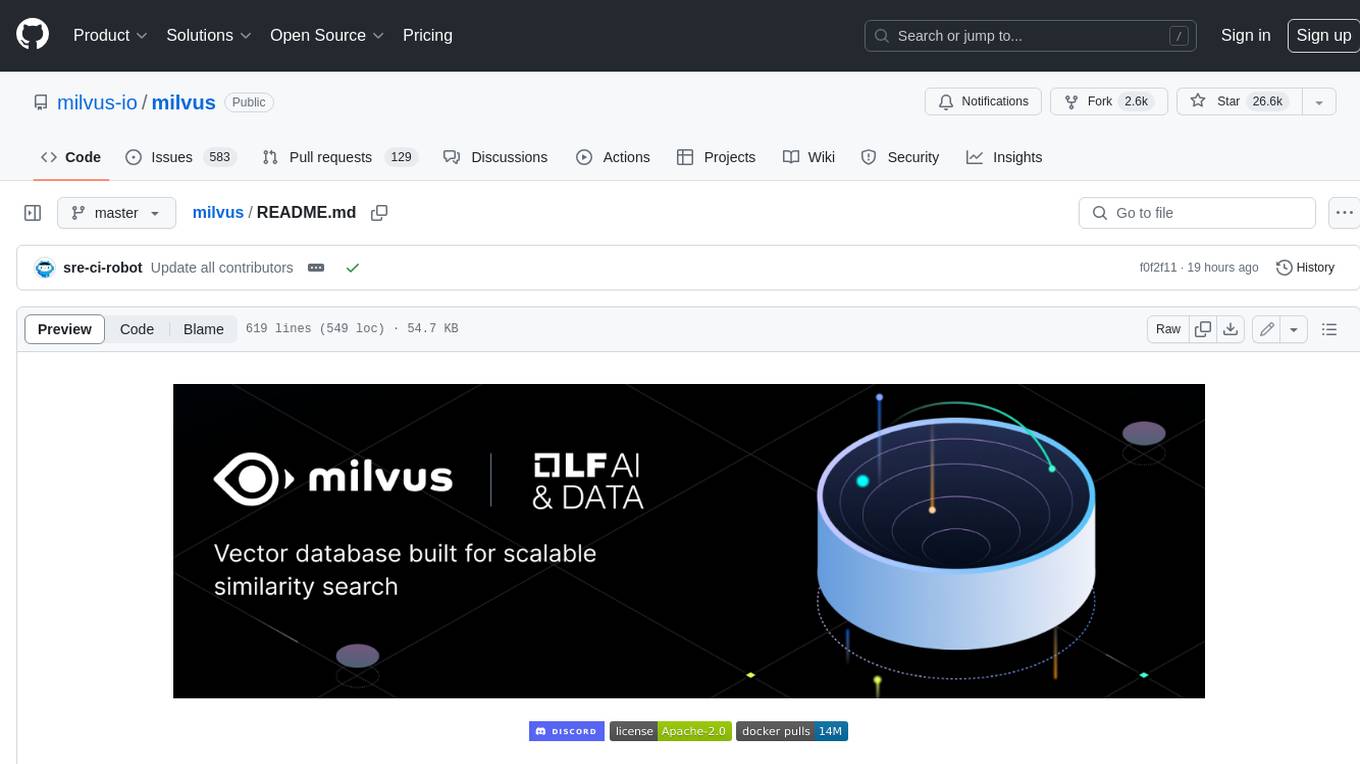
milvus
Milvus is an open-source vector database built to power embedding similarity search and AI applications. Milvus makes unstructured data search more accessible, and provides a consistent user experience regardless of the deployment environment. Milvus 2.0 is a cloud-native vector database with storage and computation separated by design. All components in this refactored version of Milvus are stateless to enhance elasticity and flexibility. For more architecture details, see Milvus Architecture Overview. Milvus was released under the open-source Apache License 2.0 in October 2019. It is currently a graduate project under LF AI & Data Foundation.
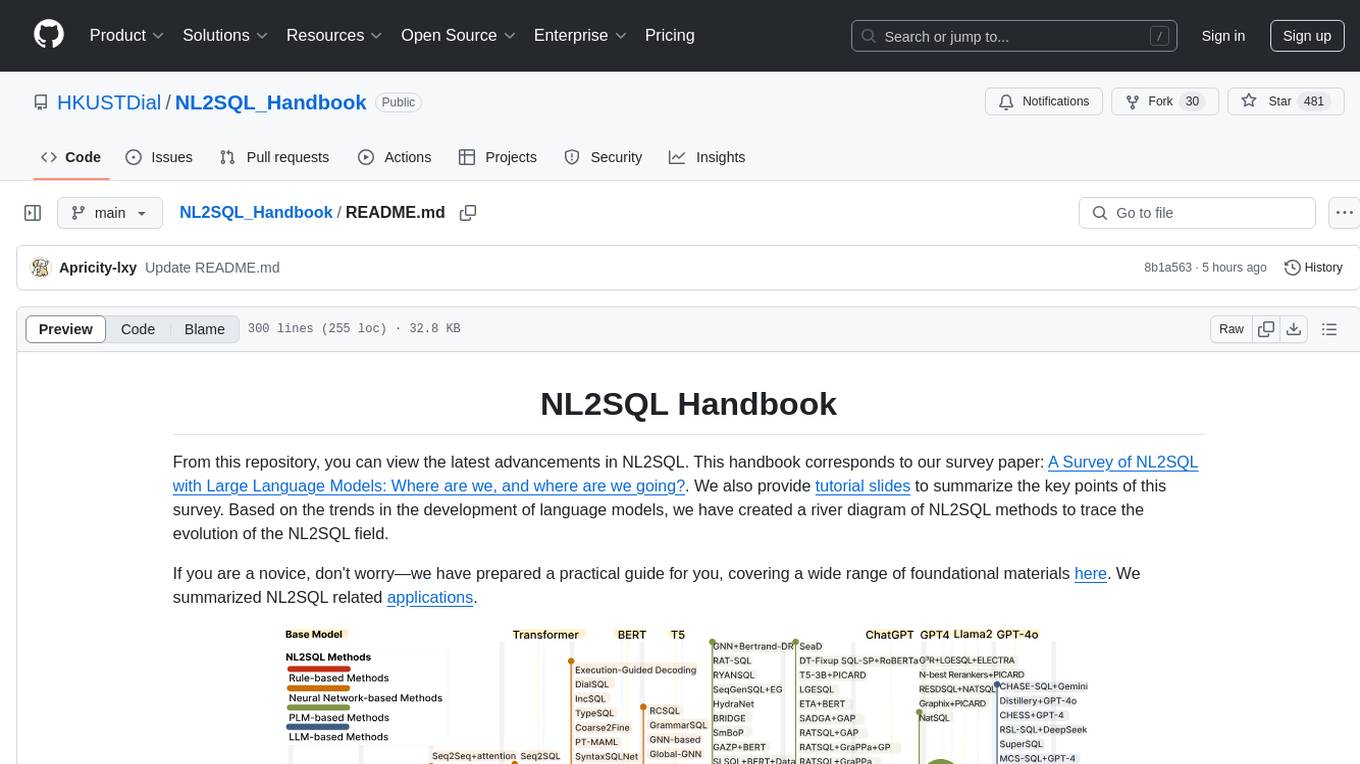
NL2SQL_Handbook
NL2SQL Handbook provides a comprehensive overview of Natural Language to SQL (NL2SQL) advancements, including survey papers, tutorial slides, and a river diagram of NL2SQL methods. It covers the evolution of NL2SQL solutions, module-based methods, benchmark development, and future directions. The repository also offers practical guides for beginners, access to high-performance language models, and evaluation metrics for NL2SQL models.
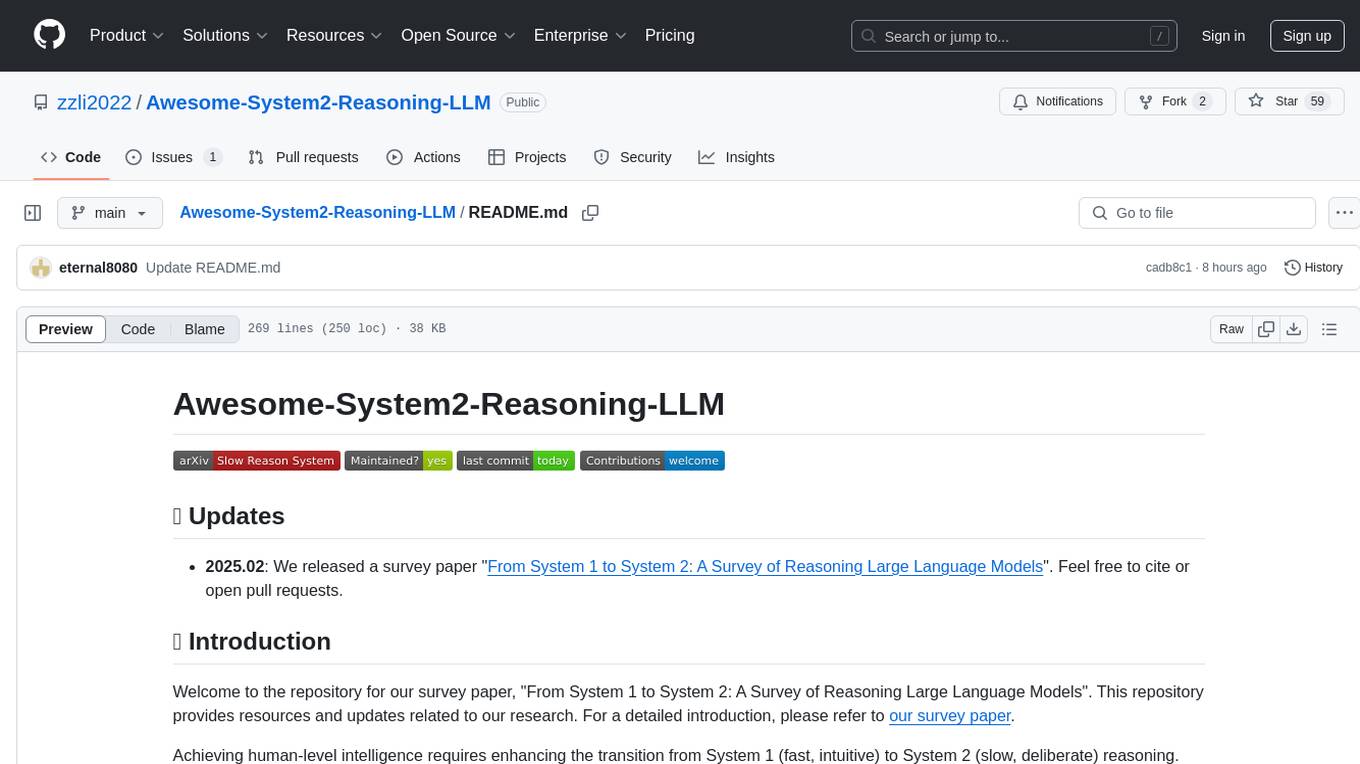
Awesome-System2-Reasoning-LLM
The Awesome-System2-Reasoning-LLM repository is dedicated to a survey paper titled 'From System 1 to System 2: A Survey of Reasoning Large Language Models'. It explores the development of reasoning Large Language Models (LLMs), their foundational technologies, benchmarks, and future directions. The repository provides resources and updates related to the research, tracking the latest developments in the field of reasoning LLMs.
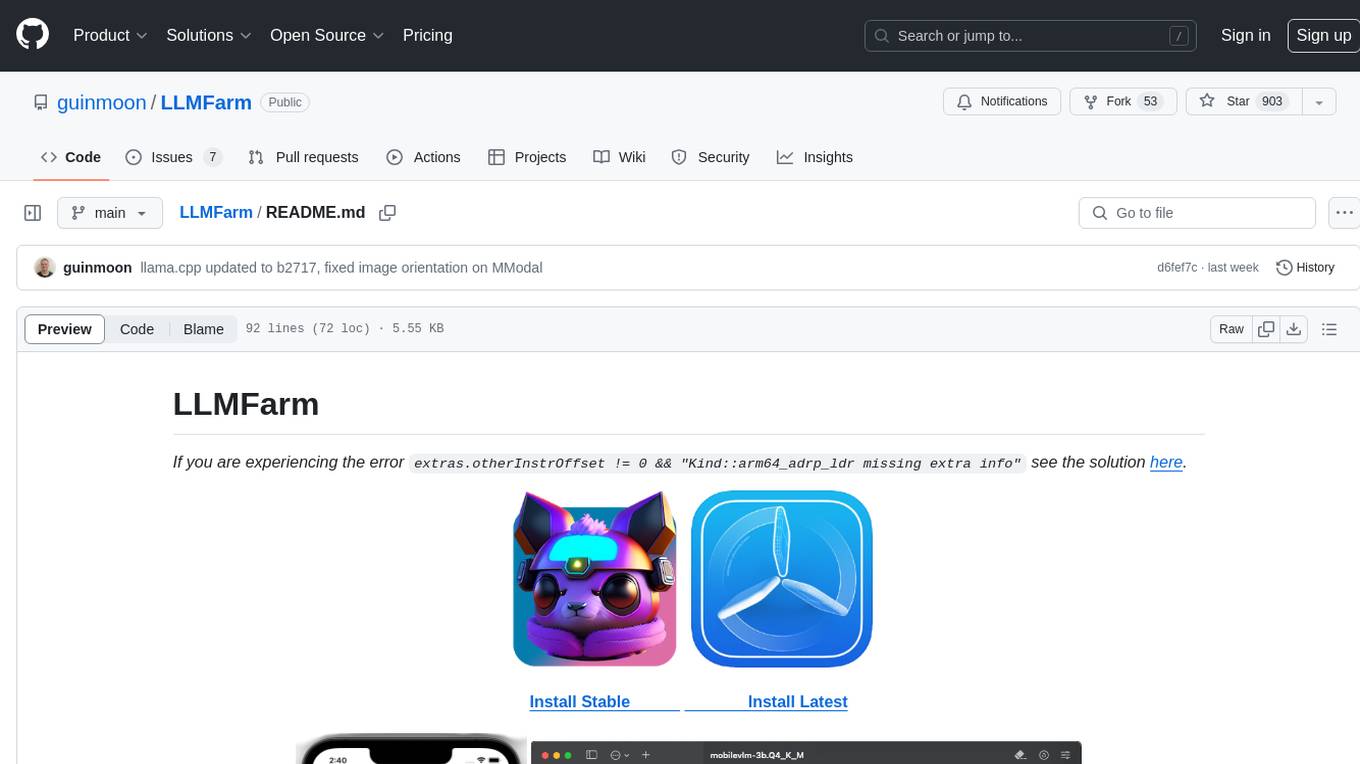
LLMFarm
LLMFarm is an iOS and MacOS app designed to work with large language models (LLM). It allows users to load different LLMs with specific parameters, test the performance of various LLMs on iOS and macOS, and identify the most suitable model for their projects. The tool is based on ggml and llama.cpp by Georgi Gerganov and incorporates sources from rwkv.cpp by saharNooby, Mia by byroneverson, and LlamaChat by alexrozanski. LLMFarm features support for MacOS (13+) and iOS (16+), various inferences and sampling methods, Metal compatibility (not supported on Intel Mac), model setting templates, LoRA adapters support, LoRA finetune support, LoRA export as model support, and more. It also offers a range of inferences including LLaMA, GPTNeoX, Replit, GPT2, Starcoder, RWKV, Falcon, MPT, Bloom, and others. Additionally, it supports multimodal models like LLaVA, Obsidian, and MobileVLM. Users can customize inference options through JSON files and access supported models for download.
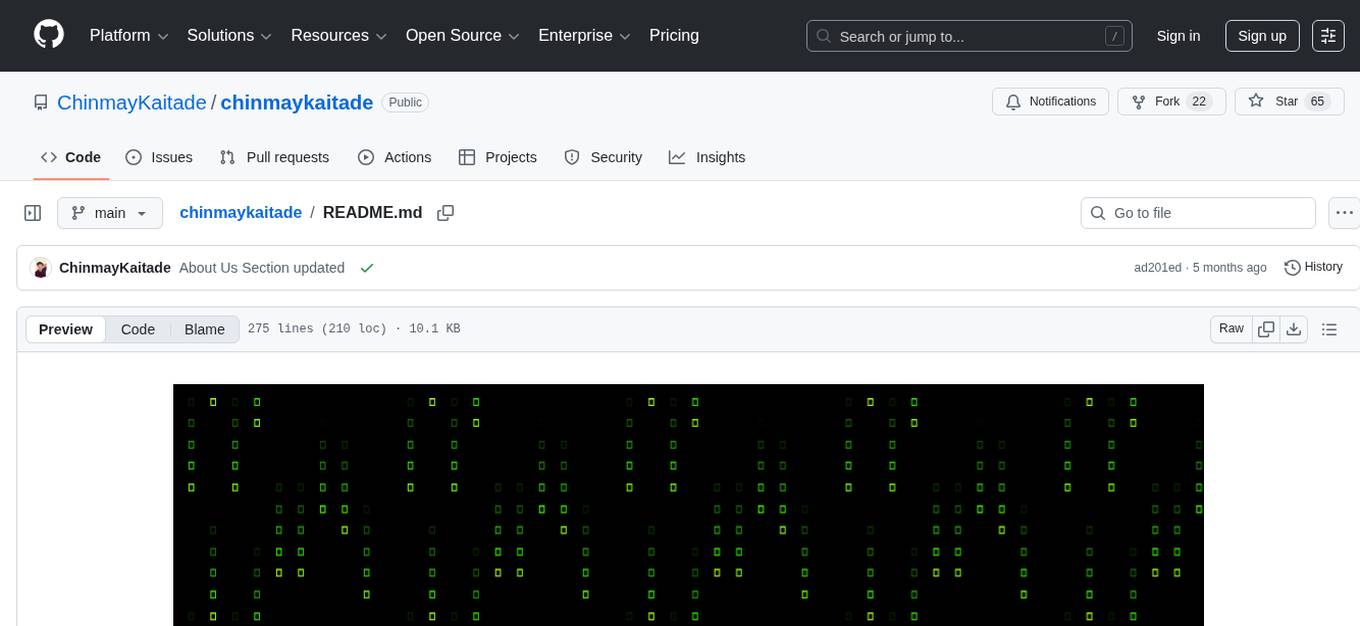
chinmaykaitade
Chinmay Kaitade is a MERN Stack Developer and AI Enthusiast from India. He is an Electrical Engineer turned Full Stack Developer and AI/ML Enthusiast, passionate about crafting innovative web applications and contributing to Open Source projects. His mission is to build scalable web applications using his full-stack expertise and emerging AI/ML knowledge. Connect with him on LinkedIn for new projects and collaborations.
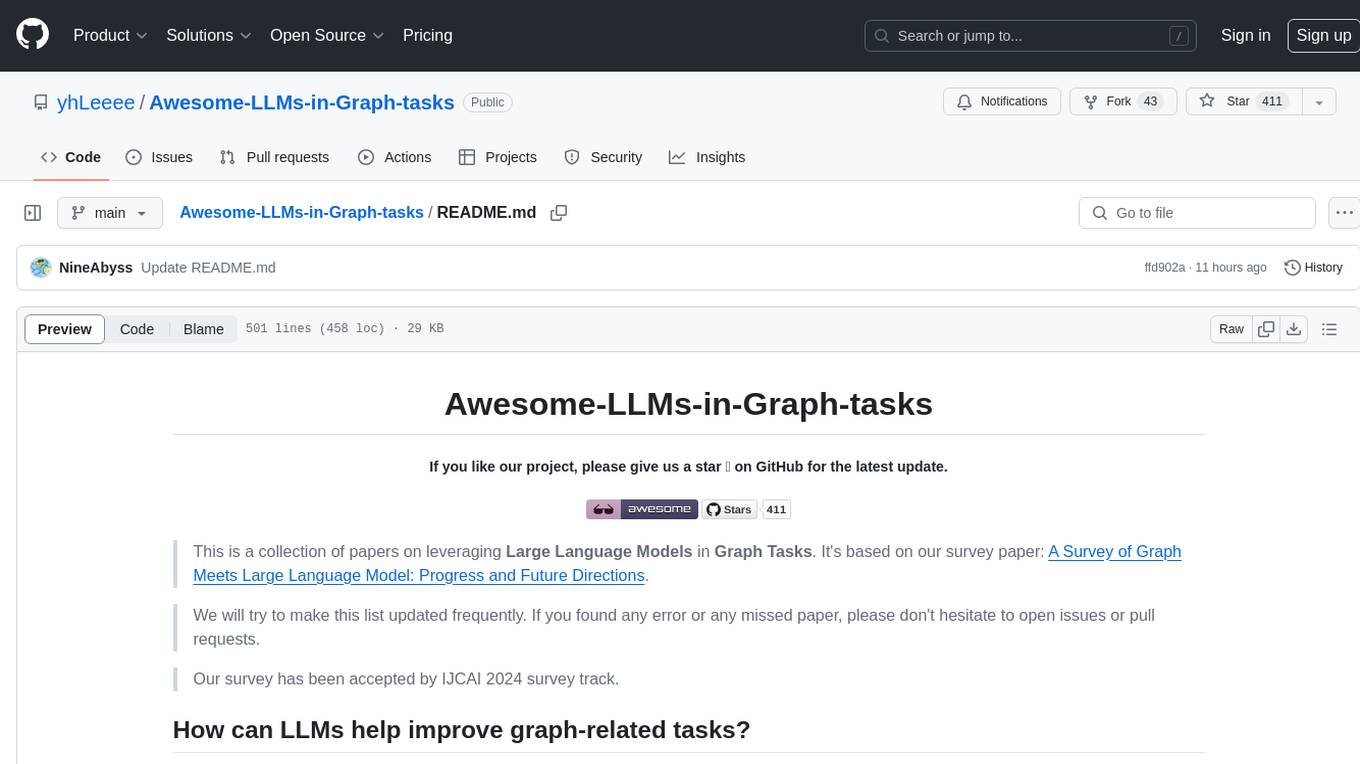
Awesome-LLMs-in-Graph-tasks
This repository is a collection of papers on leveraging Large Language Models (LLMs) in Graph Tasks. It provides a comprehensive overview of how LLMs can enhance graph-related tasks by combining them with traditional Graph Neural Networks (GNNs). The integration of LLMs with GNNs allows for capturing both structural and contextual aspects of nodes in graph data, leading to more powerful graph learning. The repository includes summaries of various models that leverage LLMs to assist in graph-related tasks, along with links to papers and code repositories for further exploration.
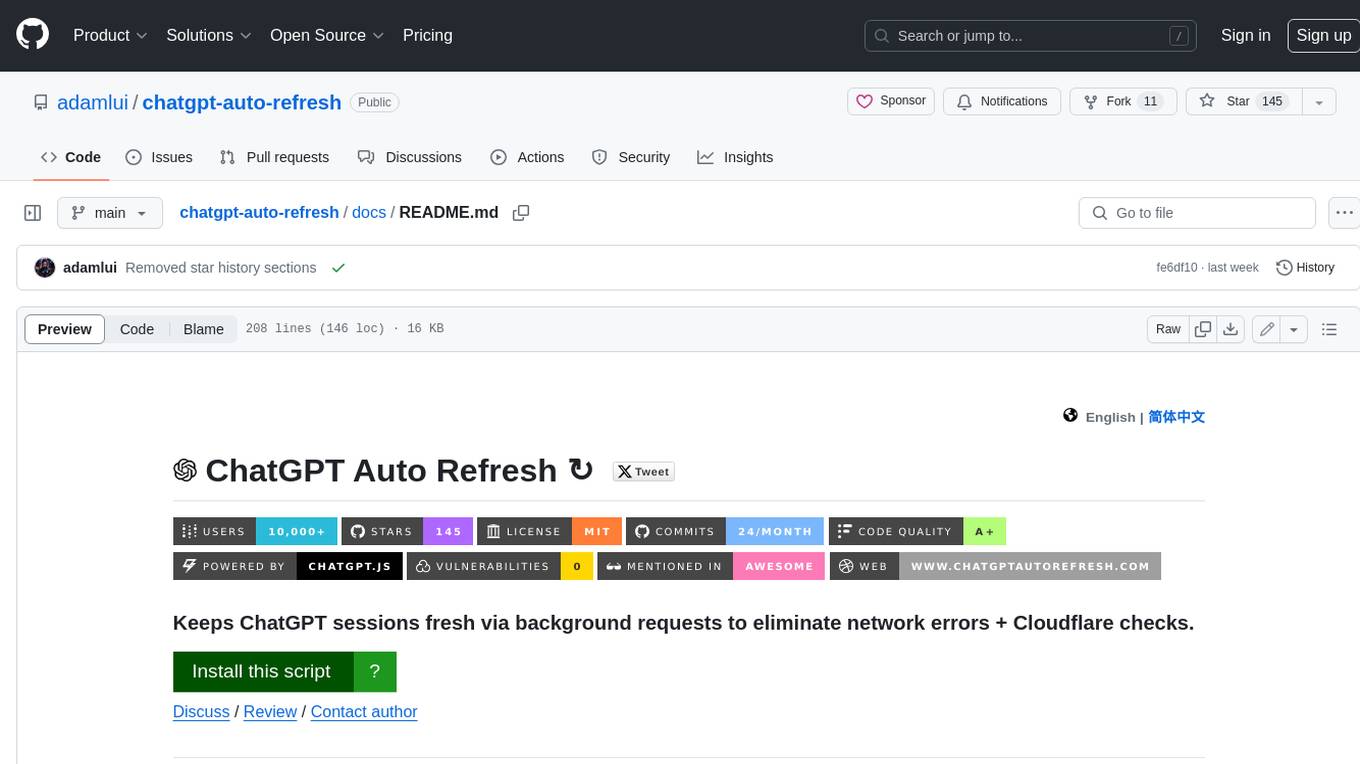
chatgpt-auto-refresh
ChatGPT Auto Refresh is a userscript that keeps ChatGPT sessions fresh by eliminating network errors and Cloudflare checks. It removes the 10-minute time limit from conversations when Chat History is disabled, ensuring a seamless experience. The tool is safe, lightweight, and a time-saver, allowing users to keep their sessions alive without constant copy/paste/refresh actions. It works even in background tabs, providing convenience and efficiency for users interacting with ChatGPT. The tool relies on the chatgpt.js library and is compatible with various browsers using Tampermonkey, making it accessible to a wide range of users.
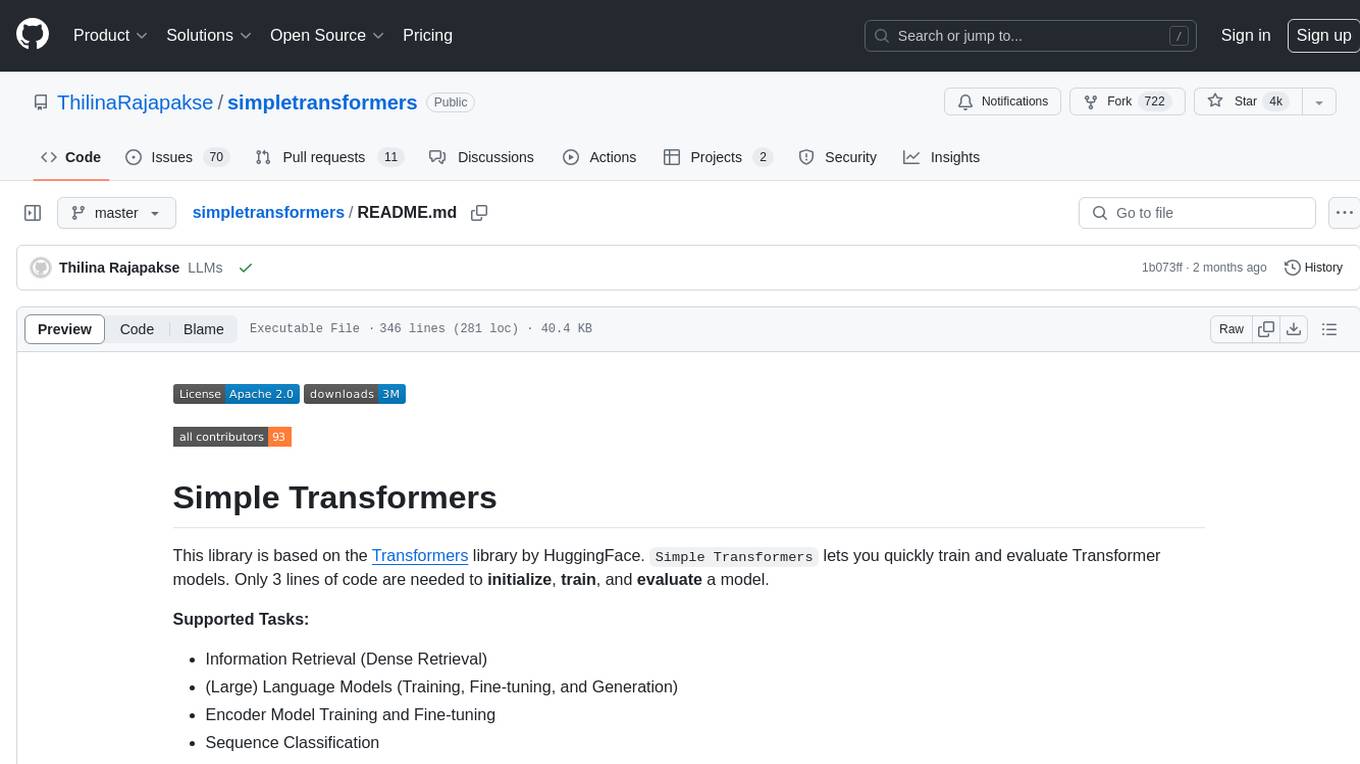
simpletransformers
Simple Transformers is a library based on the Transformers library by HuggingFace, allowing users to quickly train and evaluate Transformer models with only 3 lines of code. It supports various tasks such as Information Retrieval, Language Models, Encoder Model Training, Sequence Classification, Token Classification, Question Answering, Language Generation, T5 Model, Seq2Seq Tasks, Multi-Modal Classification, and Conversational AI.
For similar tasks
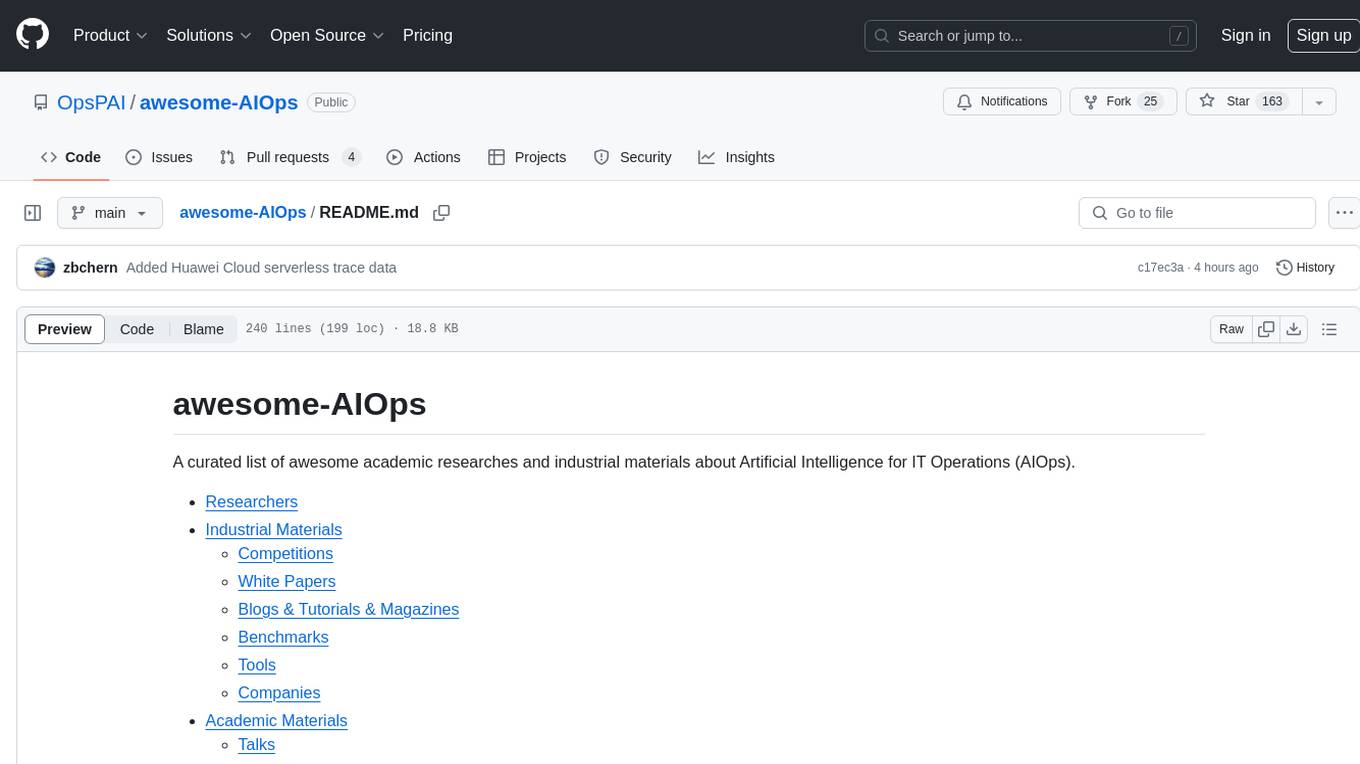
awesome-AIOps
awesome-AIOps is a curated list of academic researches and industrial materials related to Artificial Intelligence for IT Operations (AIOps). It includes resources such as competitions, white papers, blogs, tutorials, benchmarks, tools, companies, academic materials, talks, workshops, papers, and courses covering various aspects of AIOps like anomaly detection, root cause analysis, incident management, microservices, dependency tracing, and more.

awesome-LLM-AIOps
The 'awesome-LLM-AIOps' repository is a curated list of academic research and industrial materials related to Large Language Models (LLM) and Artificial Intelligence for IT Operations (AIOps). It covers various topics such as incident management, log analysis, root cause analysis, incident mitigation, and incident postmortem analysis. The repository provides a comprehensive collection of papers, projects, and tools related to the application of LLM and AI in IT operations, offering valuable insights and resources for researchers and practitioners in the field.
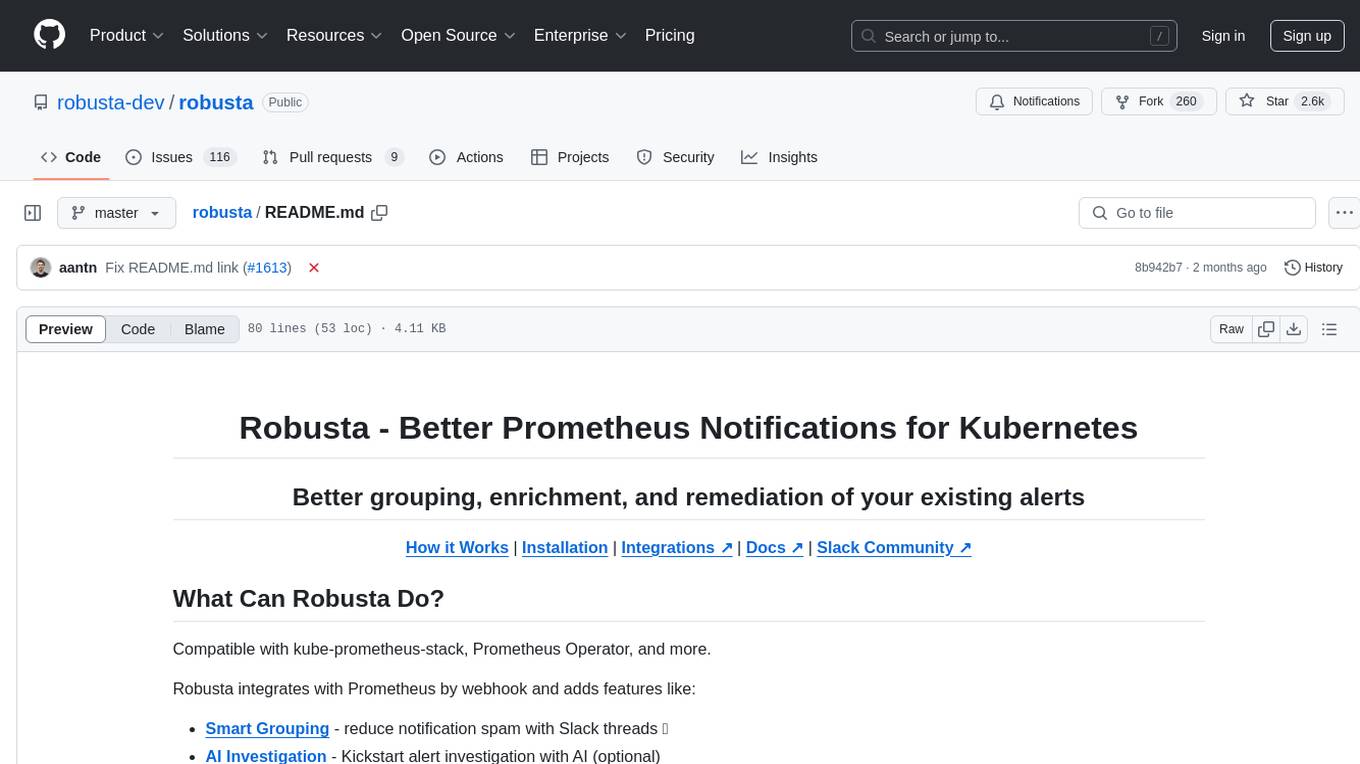
robusta
Robusta is a tool designed to enhance Prometheus notifications for Kubernetes environments. It offers features such as smart grouping to reduce notification spam, AI investigation for alert analysis, alert enrichment with additional data like pod logs, self-healing capabilities for defining auto-remediation rules, advanced routing options, problem detection without PromQL, change-tracking for Kubernetes resources, auto-resolve functionality, and integration with various external systems like Slack, Teams, and Jira. Users can utilize Robusta with or without Prometheus, and it can be installed alongside existing Prometheus setups or as part of an all-in-one Kubernetes observability stack.
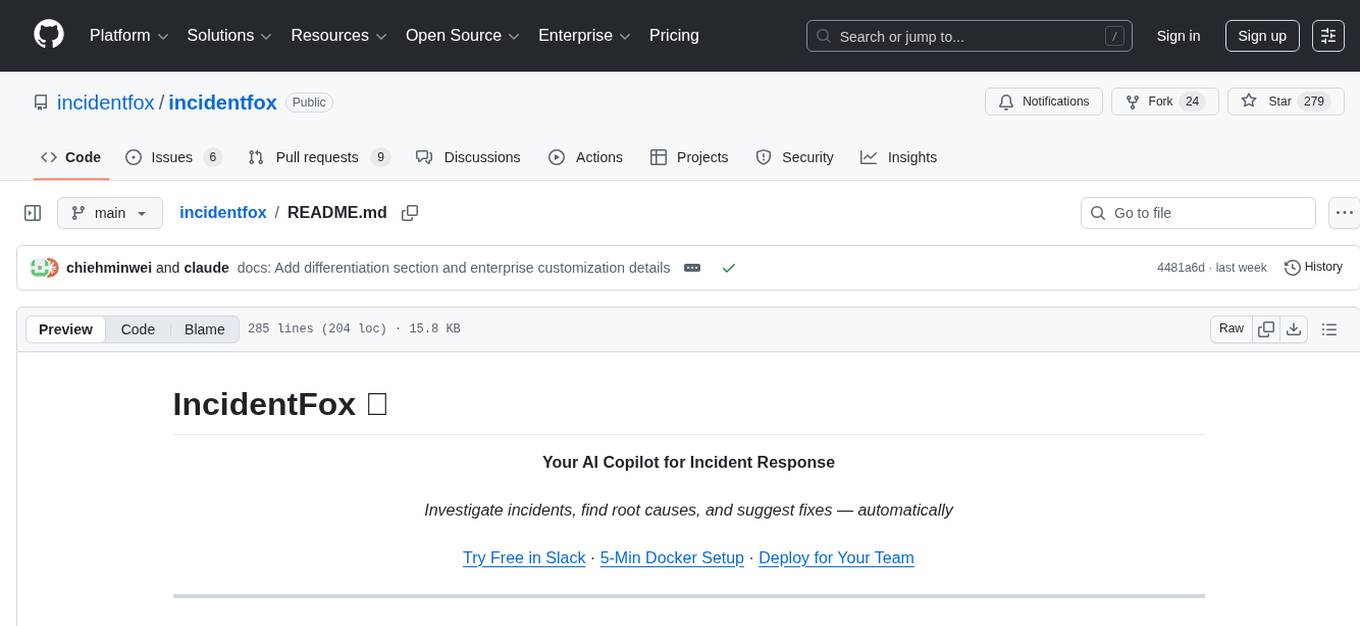
incidentfox
IncidentFox is an open-source AI SRE tool designed to assist in incident response by automatically investigating incidents, finding root causes, and suggesting fixes. It integrates with observability stack, infrastructure, and collaboration tools, forming hypotheses, collecting data, and reasoning through to find root causes. The tool is built for production on-call scenarios, handling log sampling, alert correlation, anomaly detection, and dependency mapping. IncidentFox is highly customizable, Slack-first, and works on various platforms like web UI, GitHub, PagerDuty, and API. It aims to reduce incident resolution time, alert noise, and improve knowledge retention for engineering teams.
For similar jobs

sweep
Sweep is an AI junior developer that turns bugs and feature requests into code changes. It automatically handles developer experience improvements like adding type hints and improving test coverage.

teams-ai
The Teams AI Library is a software development kit (SDK) that helps developers create bots that can interact with Teams and Microsoft 365 applications. It is built on top of the Bot Framework SDK and simplifies the process of developing bots that interact with Teams' artificial intelligence capabilities. The SDK is available for JavaScript/TypeScript, .NET, and Python.

ai-guide
This guide is dedicated to Large Language Models (LLMs) that you can run on your home computer. It assumes your PC is a lower-end, non-gaming setup.

classifai
Supercharge WordPress Content Workflows and Engagement with Artificial Intelligence. Tap into leading cloud-based services like OpenAI, Microsoft Azure AI, Google Gemini and IBM Watson to augment your WordPress-powered websites. Publish content faster while improving SEO performance and increasing audience engagement. ClassifAI integrates Artificial Intelligence and Machine Learning technologies to lighten your workload and eliminate tedious tasks, giving you more time to create original content that matters.

chatbot-ui
Chatbot UI is an open-source AI chat app that allows users to create and deploy their own AI chatbots. It is easy to use and can be customized to fit any need. Chatbot UI is perfect for businesses, developers, and anyone who wants to create a chatbot.

BricksLLM
BricksLLM is a cloud native AI gateway written in Go. Currently, it provides native support for OpenAI, Anthropic, Azure OpenAI and vLLM. BricksLLM aims to provide enterprise level infrastructure that can power any LLM production use cases. Here are some use cases for BricksLLM: * Set LLM usage limits for users on different pricing tiers * Track LLM usage on a per user and per organization basis * Block or redact requests containing PIIs * Improve LLM reliability with failovers, retries and caching * Distribute API keys with rate limits and cost limits for internal development/production use cases * Distribute API keys with rate limits and cost limits for students

uAgents
uAgents is a Python library developed by Fetch.ai that allows for the creation of autonomous AI agents. These agents can perform various tasks on a schedule or take action on various events. uAgents are easy to create and manage, and they are connected to a fast-growing network of other uAgents. They are also secure, with cryptographically secured messages and wallets.

griptape
Griptape is a modular Python framework for building AI-powered applications that securely connect to your enterprise data and APIs. It offers developers the ability to maintain control and flexibility at every step. Griptape's core components include Structures (Agents, Pipelines, and Workflows), Tasks, Tools, Memory (Conversation Memory, Task Memory, and Meta Memory), Drivers (Prompt and Embedding Drivers, Vector Store Drivers, Image Generation Drivers, Image Query Drivers, SQL Drivers, Web Scraper Drivers, and Conversation Memory Drivers), Engines (Query Engines, Extraction Engines, Summary Engines, Image Generation Engines, and Image Query Engines), and additional components (Rulesets, Loaders, Artifacts, Chunkers, and Tokenizers). Griptape enables developers to create AI-powered applications with ease and efficiency.

















-red)



-red)


































-red)









-red)




